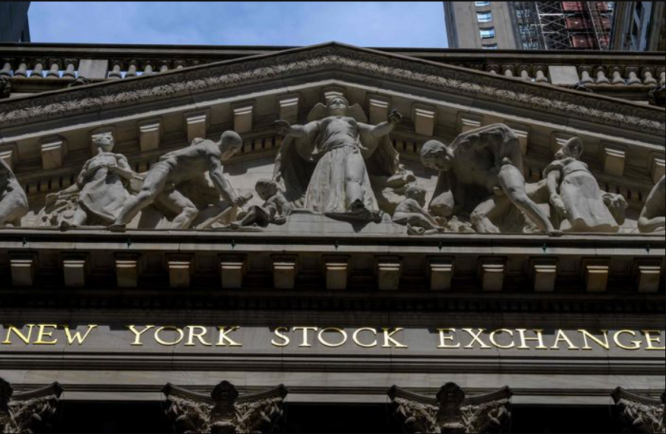
The dollar rose after the European Central Bank hiked rates on Thursday and signaled the need for additional tightening a day after the U.S. Federal Reserve raised rates. A global stock index declined for the fourth day. Oil prices steadied while U.S. Treasury rates fell. Wall Street stock indices were also pressured by another bank share selloff following the weekend collapse of a third big regional bank.
After the ECB, the central bank for the 20 countries that use the euro currency, raised interest rates by 25 basis points to 3.25 percent and signaled that more tightening was needed to control inflation, European stocks fell. Unlike the ECB, the Fed suggested its marathon raising cycle may be ending.
Lauren Goodwin, economist and portfolio strategist at New York Life Investments in New York, said a delay in U.S. rate rises was good news for investors but implied a weakening economy. “This balance between potential interest rate stability and an increase in recession risk is what markets are trying to digest today,” said Goodwin.

SPX fell 29.53 points, or 0.72 percent, to 4,061.22. Nasdaq Composite (.IXIC) fell 58.93 points, or 0.49 percent, to 11,966.40.
The Fed’s mention of tighter credit conditions confirmed the economist’s predictions of a recession. “It’s highly unlikely we’ll avoid a recession,” Goodwin remarked. “A recession is imminent.” The Dow Jones Industrial Average (.DJI) slid 286.5 points, or 0.86 percent, to 33,127.74, while the S&P 500 (.SPX) sank 29.53 points, or 0.72 percent, to 4,061.22. Nasdaq Composite (.IXIC) fell 58.93 points, or 0.49 percent, to 11,966.40.
Wall Street’s three major indexes fell for a fourth day. Nasdaq lost the most since December. MSCI’s global stock index (.MIWD00000PUS) fell 0.47 percent, its first four-day loss since mid-March.
Emerging market equities (.MSCIEF) climbed 0.7% following three consecutive falls. PacWest Bancorp (PACW.O), another regional bank, warned investors days following First Republic’s failure. The S&P 500 bank index (.SPXBK) fell 2.8 percent while the KBW regional banking index (.KRX) fell 3.5 percent.
The Dow Transports index (.DJI) finished down 1.3 percent due to concerns about banks and their tougher lending restrictions, according to Ingalls & Snyder senior portfolio manager Tim Ghriskey.
The banking crisis will tighten credit. Ghriskey noted that airlines will face higher rates and less financing to acquire new aircraft due to fewer lenders. After the ECB’s rate hike, the dollar rose against the euro. Dollar index up 0.188 percent, euro fell 0.43 percent to $1.1011. The dollar fell 0.39 percent to 134.16 yen.
The tightening cycle’s monetary policy dynamics are mostly priced in. Shaun Osborne, Scotiabank’s senior FX strategist in Toronto, said, “Now, it’s going to be a focus on the bets on when the Fed starts to ease, how much it eases, and how that relates to (other) central banks.”

10-year and 2-year Treasuries fell as investors fretted about regional banks and the economy.
Benchmark 10-year notes fell 3.4 basis points to 3.369 percent from 3.403 percent late Wednesday. The 30-year bond yielded 3.7243 percent, up 0.9 basis points from 3.715. The 2-year note yielded 3.7656 percent, 17.3 basis points lower than 3.939 percent.
After three days of steep drops due to demand concerns in major consuming countries due to global economy issues, crude oil prices steadied.
U.S. crude closed at $68.56, down 0.06 percent, while Brent closed at $72.50, up 0.24 percent. U.S. financial worries boosted spot gold to its highest level in years. Gold rose 0.6% to $2,050.66 an ounce. U.S. gold futures rose 0.95 percent to $2,047.90 an ounce.
